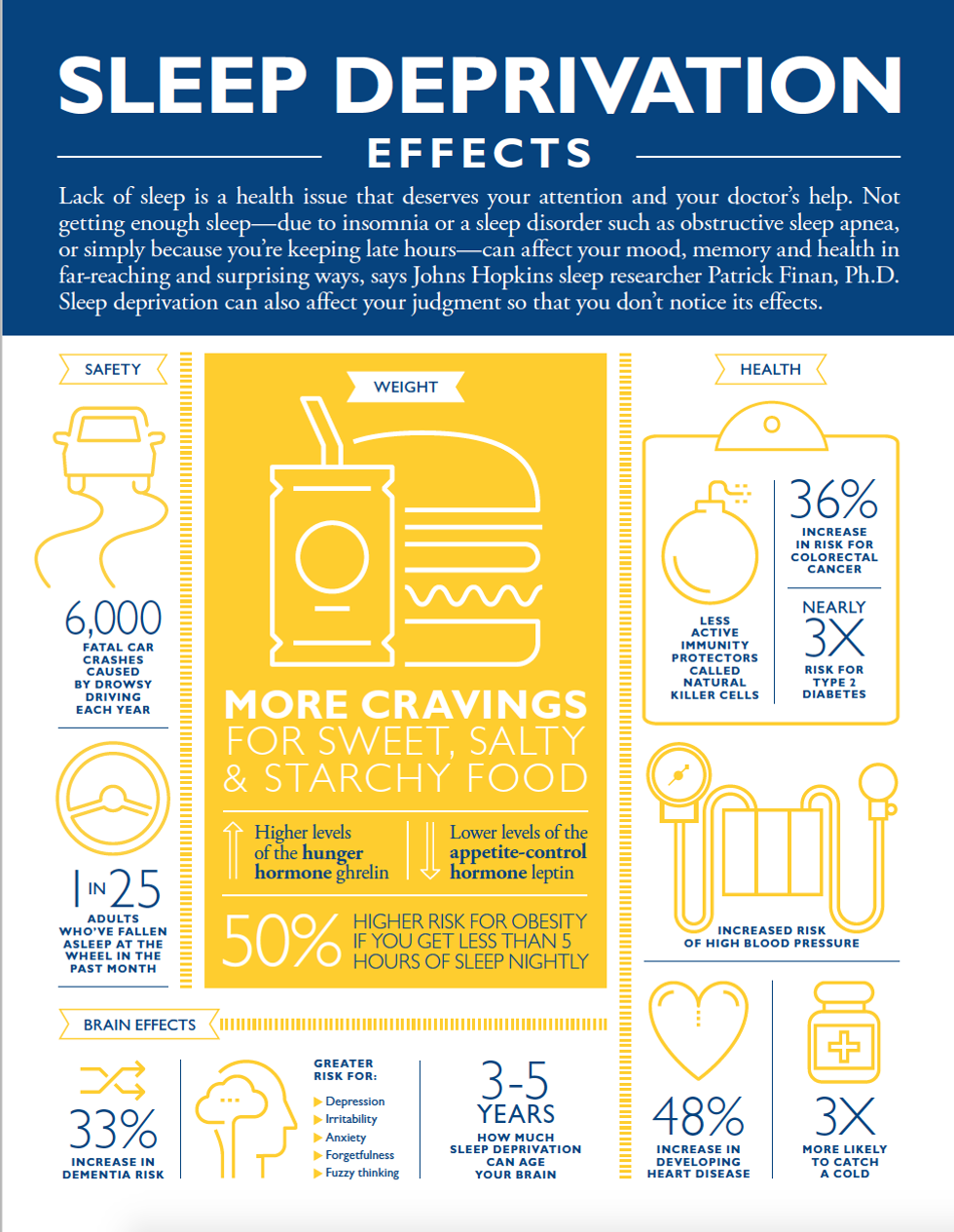It's come to my attention that a lot of high school and college students have stopped valuing sleep. People often sacrifice their sleep to finish assignments, study for a test, work out, and as you might have guessed, watch Netflix. I'm not trying to say that there won't be a night where you'll have to stay up past midnight to finish a Chem lab or to complete a paper, but I am trying to say that it should not be happening every night.
A study at Harvard found that sleep deprivation affects "people's ability to learn and perform a variety of tasks." If you're one of the people who think they can function without sleep, image what you could do if you got at least 8 hours of sleep every night. Also, take a look at this graphic by Johns Hopkins and see some other effects of sleep deprivation.

Not only can sleep deprivation cause 6,000 car crashes each year, but it can also lead you to gain weight, become more prone to heart diseases, and also have a higher risk of depression, irritability, and anxiety. I've seen too many of my close friends sacrifice their sleep to complete various tasks and ultimately they end up much more irritable and anxious. While it might seem like you need to stay up constantly to finish everything you need to do, please try to think about your mental health and the long-term effects it can have on your body. Sometimes you just need to close the textbook, turn off the laptop, and get a good night's sleep.
Before thinking that this article is irrelevant and doesn't apply to you because you can function without sleep, let's talk about what sleep does for the human body. On a basic level, sleep is important for brain plasticity and helps us function throughout the day. This means that sleep helps us process information and consolidate everything so that we can remember things in the future. For students, this is the most important thing for us.
While taking 12-18 credit hours per semester, we're usually in class every day and have to process the loads of information that our professors throw at us. It's important for us to be alert during the day so that we effectively improve our learning and memory. While we acquire and recall everything that's said during class, we need to be able to consolidate all this information and guess where that happens — while you sleep. I've seen a lot of people pull all-nighters before tests and while that might work for a small number of people, sometimes it's better to sleep and let your brain process everything that it's crammed.
Okay yes, it might be implausible for every high school and college student to be able to go to bed by 10 p.m. every night. Even though I try to make it in bed by 10 p.m. every night, there are still a couple nights this semester where I stayed up till 11 or midnight. The biggest tip I have is to make sure you manage your time!
I use Google Calendar for everything and map out when I'm going to complete assignments and readings. I also make sure I schedule time to go to the gym, go to professor office hours, etc.. I started doing this because I spent way too many days in the library staring at my computer for hours not knowing where to start with my work. Make sure to also use the resources your campus provides like office hours, review sessions, and writing centers. I usually try to get my papers done a week in advance so that I can visit the Writing Center and discuss my ideas with my professor or TA.
Also, another pro tip of going to bed early is actually going to class and doing your readings (woah). This makes it so much easier to write papers and prepare for tests because you won't have to pull an all-nighter the night before trying to make sense of the professor's notes or cramming 200+ pages of readings.
Now I'm assuming that some of you are still not convinced. You might be taking 18 credit hours, in 5 different clubs, or working multiple part-time jobs. I'm telling you — nothing is worth constantly sacrificing your sleep. In the long run, getting into a good sleep routine will ultimately make you happier, healthier, and less prone to diseases.






















